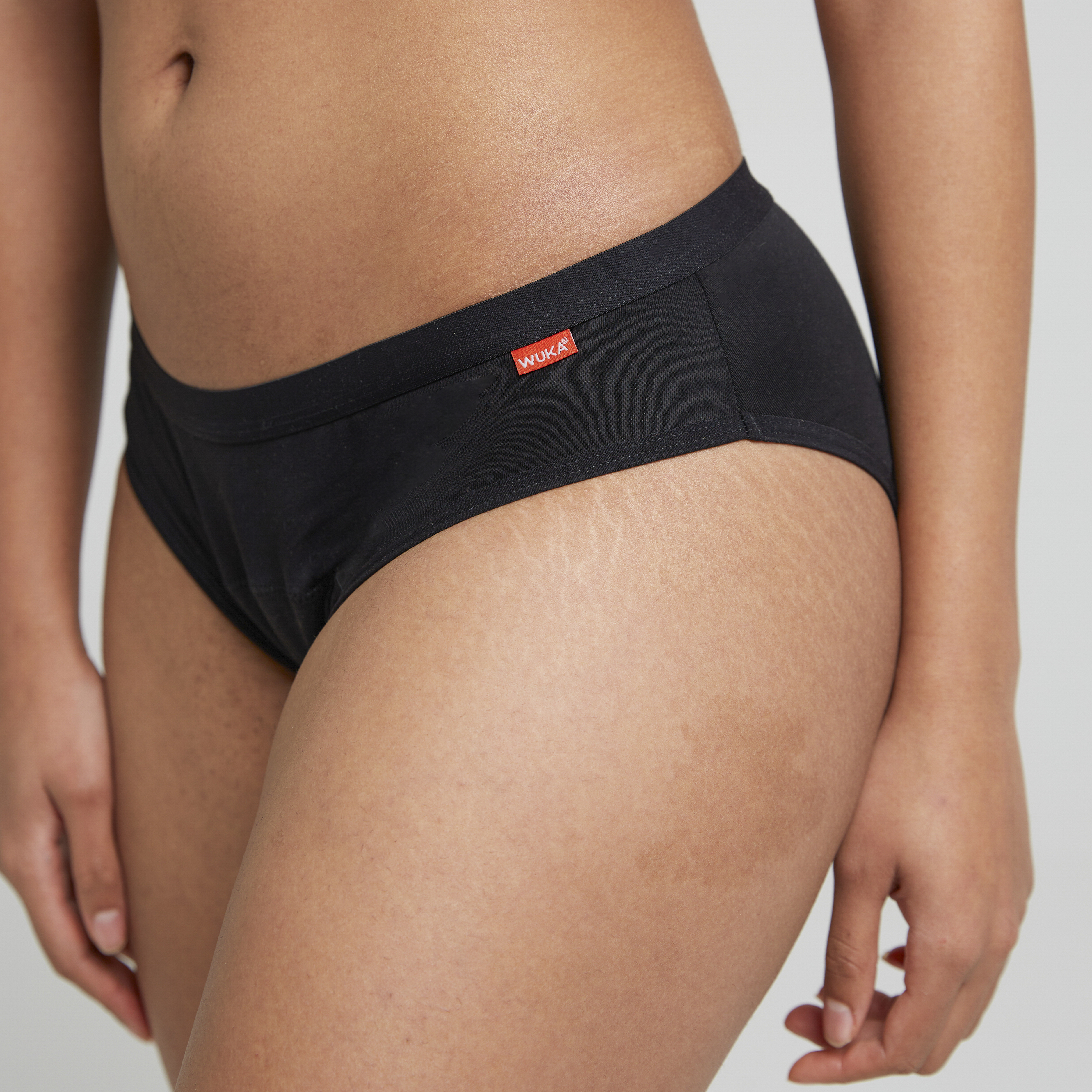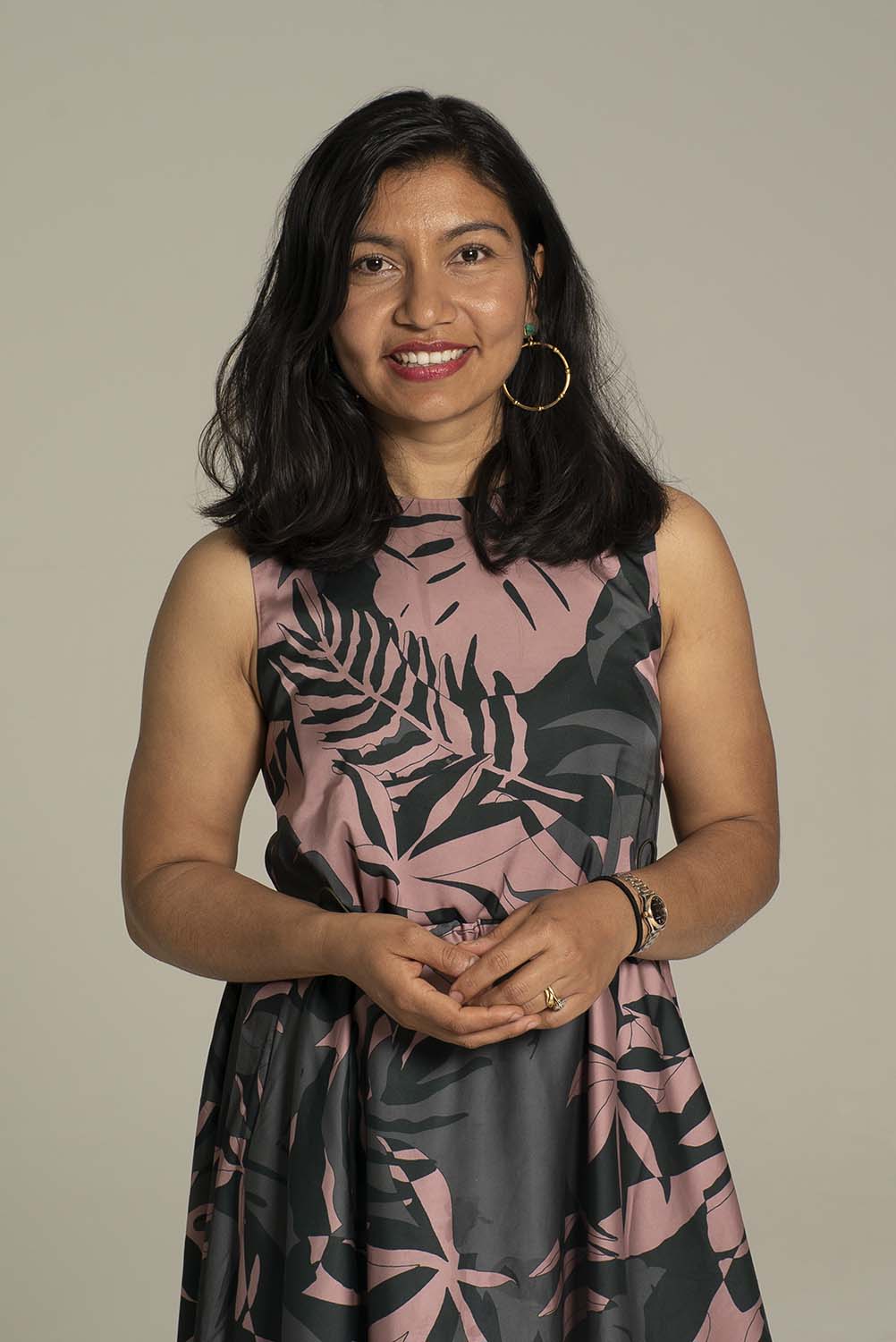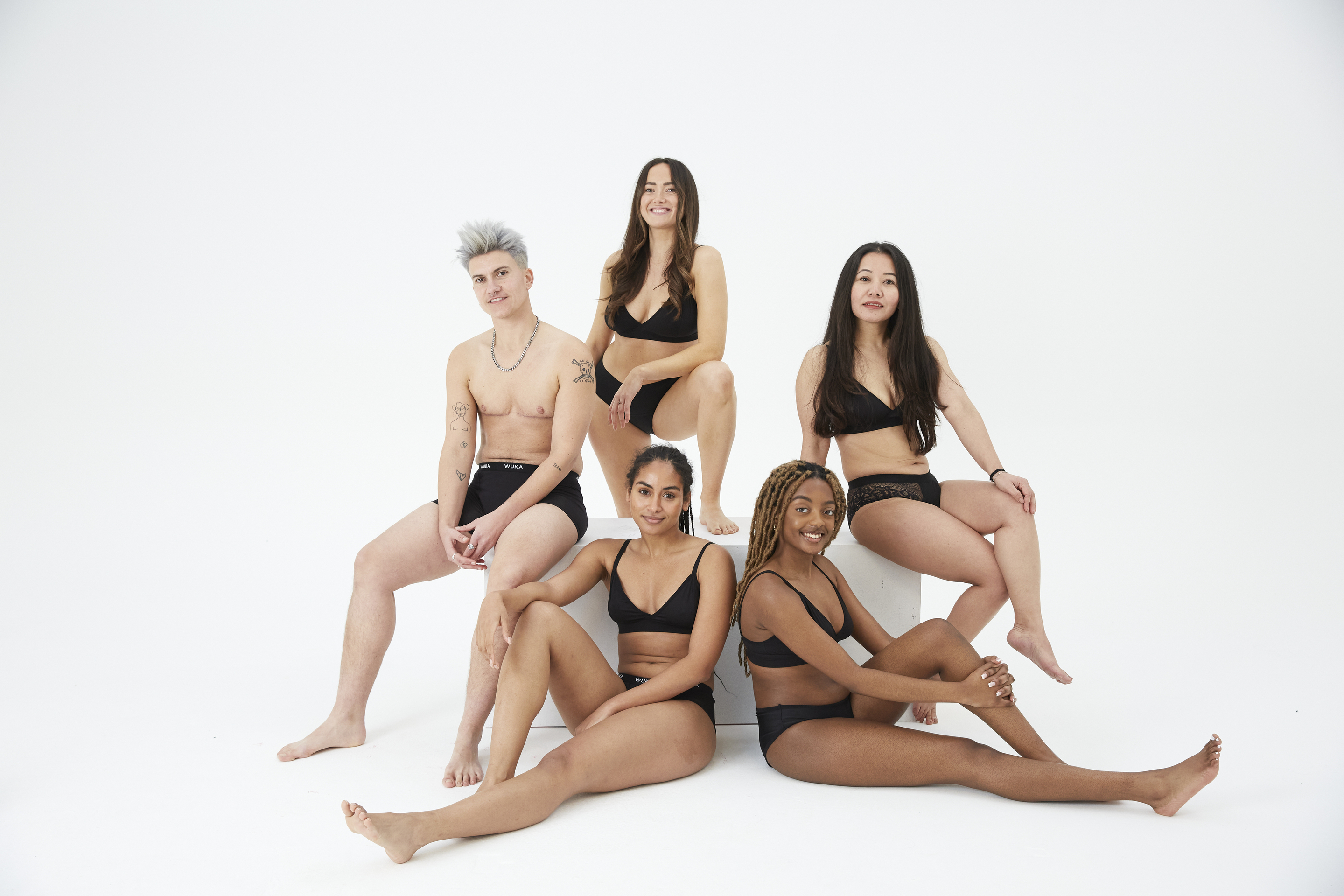Interviews
How a Nepali environmental scientist founded award-winning period pants
WUKA is a line of absorbent and leakproof period underwear that prioritises comfort and environmental sustainability.
Aakriti Ghimire
In the last decade, the market for disposable sanitary pads has skyrocketed, with aisles in supermarkets filled with imported and home-grown sanitary pads, tampons and pantyliners. While disposable sanitary pads have revolutionised how menstruation is managed globally, the unsustainability of plastic- and chemical-based period products is also becoming a highly debated issue.
As menstruators seek more comfortable and sustainable menstrual products, one of the innovations that is slashing the number of pads going into landfills worldwide is WUKA period pants.
Founded and run by Ruby Raut, WUKA, which stands for Wake Up Kick Ass, is a line of sustainable and ethically made period underwear, a brand based in the UK. WUKA period pants are just like any other regular underwear but made with absorbent, leakproof and breathable fabric to ensure a comfortable and sustainable period.
Raut, born in Yasok, a village in Panchthar, lived most of her life in Bhadrapur, Jhapa, before heading to the UK for her undergraduate degree, and has been living in the UK for the last 12 years.
The Post’s Aakriti Ghimire spoke with Raut about her journey from using her mother’s old cotton sarees as pads during her periods to founding the award-winning WUKA period pants that are sold in 46 countries.
This interview has been condensed for clarity.
What is WUKA?
Wake Up Kick Ass—that’s WUKA. There’s generally a negative connotation around periods. But women worldwide have been kicking ass, regardless of whether they have periods. We wanted to put a more positive spin on the brand name, so we named it WUKA.
We design and sell period pants: underwear that completely replaces the need for disposable sanitary pads or tampons. They look like your regular underwear and feel like your regular underwear but have technical fabric inside that absorbs the blood and doesn’t allow it to leak. Once you take it out, you rinse the blood and wash it like regular clothes.
Every pair of WUKA replaces around 200 disposables going to landfills. They are a very sustainable period product and super comfortable for anyone.
We also did a carbon report on our product last year and found that it has six times less footprint than tampons and pads.
What was your experience with period products growing up in Nepal versus moving to the UK?
I had my first period when I was 12 years old and my mum gave me strips of her old sarees, cut into small pieces. Those were my menstrual products. My sisters before me had the same thing. We had a stack of six little fabric cloths. Super sustainable, if you think of it but they were quite uncomfortable.
I was around 17-18 when I tried my first sanitary pads. I wore one pad, and after I took it off, I didn’t have any place to throw it away. We didn’t have bins or anybody who could collect it. I chose to either burn it or bury it.
At least with cotton pads, I could wash, dry and put it away. So I went back to cloth pads.
When I arrived in the UK at 20 and went to the supermarket, I was shocked. You have an entire aisle for menstrual health management, anything you can think of—wipes to clean down there, pantyliners for discharges, day pads, night pads, thin pads, thick pads, tampons with string and tampons without string. You name anything and it’s there.
It was like a paradise for period products.
But it was only when I started studying environmental science as my undergraduate that I became more aware of how unsustainable everything is. You put it in the bin and you forget where it goes but it takes around 500-600 years for the plastic in pads and tampons to decompose.

How did you come up with the idea of period pants?
I was volunteering at Women’s Environmental Network and came across their 20-year-old research on chemicals used in period products to make them look white and the usage of perfumes on the pads.
I asked if we could reignite the project, sharing how I used cotton pads growing up in Nepal. One thing led to another and we thought of teaching school kids about 'environmenstrual' products—environment-friendly menstruation products.
I was talking to the girls and I had this eureka moment where I thought to myself—you could have my mum’s saree sewn into the underwear and then worn like any other underwear.
On my way back home, I bought a second-hand sewing machine. I looked up a tutorial on Youtube and taught myself how to sew and make underwear. I took my husband’s old cotton t-shirts, put them in between the underwear and started innovating.
And I said I would wear it for the next few months to see how it feels.
And it worked.
How did you turn the idea to WUKA?
Now as much as it worked, it only absorbed a certain amount of blood. I then started looking into the leakproof fabric and stumbled upon umbrella fabrics and reusable nappies but they didn’t work.
After about four months of trial and error, I came across this amazing absorbent fabric that holds 200 times its weight. Predominantly used for undersea cabling, the fabric wraps around these huge pipes so that if any leak happens, the absorbent fabric will absorb and distribute it.
I took that fabric and then consistently called one of the last standing lingerie manufacturers in Wales for about three months. They finally let me make thirty underwear. I came back home and posted in local Facebook groups asking if anyone would want to try some period pants. And at that time, there was no word for ‘period pants’ either.
A month later, I started getting feedback from twenty-five people who tried it. They said, “it works and is absolutely comfortable to wear.” And that was enough for me.
I then went to the Kickstarter campaign in November 2017—a crowdfunding platform where you can put up your ideas and get funded. In two weeks, I managed to raise 7000 GBP, approximately Rs10 lakhs in Nepal, because a total of 116 strangers online really thought that this was going to work.
And that’s how it started.
On December 21, 2017, I had my very first order. I still email her every year to thank her for being my first customer.

How did WUKA perform once it got out in the market?
By March 2018, we were in every national news. “The UK’s first period pants are here”—headlines read.
It really boosted quite a lot of interest. We sold out the first 2000 products we had placed an order to the point that we managed to be in stock only in September 2018. People even waited for three months to get their period pants. And this is one style of underwear, one colour, one flow.
The first year, it was just me and my husband who helped at the weekend. He did the website for me and I learned everything else myself. A year and a half later, I got my first hire—a customer service and packing/shipping person.
Two years in, my husband left his job and joined me full-time. Now we are a team of 17 people. We managed to grow quite a bit. We’ve got a big warehouse and different lines of underwear too.
We sell in 46 countries around the world. We supply supermarkets across the UK, sitting next to all those paradise period products. And now ‘period pants’ is one of the most competing terms—so many brands are coming up.
In the UK, we are the number one brand; globally, we are in the top three.
The last two years have been rapid business growth. It’s incredible.
What was the biggest challenge you faced with WUKA?
With period pants, we created a new category that did not exist before. This means that this product is about changing habits. And in the entire world, one of the hardest things to do is convincing people to change habits. Convincing people to switch from what they have been using for decades to something reusable is tough.
The first two years just explained the product and how it works.
These days, whenever I do an in-person event, people at least know about period pants. Now, it’s just about that click. About what ticks people to change their habits.

What was it like for you to bring WUKA to Nepal?
I couldn’t take WUKA to Nepal two years ago because it was not popular here in the UK. WUKA has become a brand name in the UK, and it's easier to take it to Nepal. We sell online in Nepal for Rs1200, a comparatively lower price than in the UK.
We supply to quite a lot of charities, sports clubs, sports schools and trans-youth charities in the UK and Nepal. Every four months, we send 250 underwear to Days for Girls in Nepal.
We are more than happy to collaborate with organisations in Nepal willing to buy our products in bulk as part of their projects, which means we can provide them discounts of up to 30-35 percent compared to the retail price.




 16.16°C Kathmandu
16.16°C Kathmandu












